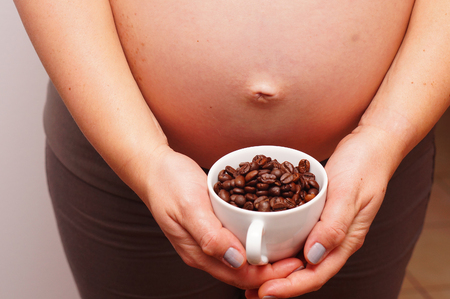
When you are expecting, you want to do all you can to ensure you bring a healthy child into the world – including making lifestyle changes such as reducing caffeine intake. But when you’re asking the barista to hold that extra shot of espresso from your morning cup of coffee- you may secretly wonder what all the fuss is about.
Although coffee is a common – and popular – source of caffeine, the stimulant can also be found in a number of other foods and beverages including chocolate, tea, energy drinks and soda.
The truth is there is a lot of uncertainty about how caffeine affects your baby. It is clear caffeine raises the mother’s heart rate and blood pressure, neither of which is recommended during pregnancy. Caffeine is also a diuretic that increases urine output and can lead to dehydration.
In addition, caffeine crosses the placental barrier and is poorly metabolize by newborns. The American College of Obstetricians and Gynecologists recognizes two studies completed with caffeine. One shows an increase in miscarriage in women who consumed higher levels of caffeine- the other did not.
Talk with your OBGYN about caffeine and the amount considered safe for pregnancy. Until more is known about the affects of caffeine on pregnancy and miscarriage, the March of Dimes recommends pregnant women reduce their caffeine intake to 200mg or less per day- roughly a 12oz cup of coffee. But not all coffee is caffeinated equally. It’s a good idea to know what you’re consuming- especially since caffeine is present in many non-coffee foods, as well.
Depending on the roast, a 12oz (tall) Starbucks coffee ranges from 195mg of caffeine (Featured Dark Roast) to 280mg (Clover Brewed Coffee). Even a cup of decaf can hold 20mg of caffeine. Therefore, it is prudent to review the nutritional information before grabbing a cup of coffee, coffee-flavored food, tea, chocolate or soda.





